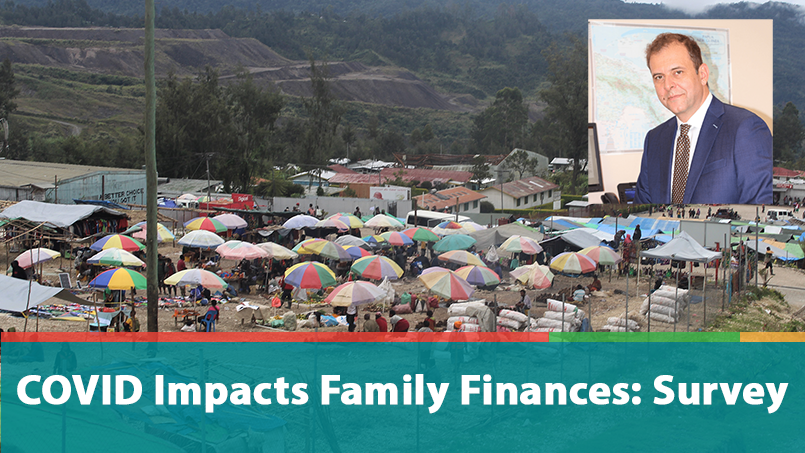
A joint report by World Bank and UNICEF-PNG presents the findings from two mobile phone surveys conducted mid this year on the impacts of COVID-19 in Papua New Guinea.
The survey had found that coping with household finances is the biggest worry for PNG families during the COVID-19 pandemic.
The study shows that poorer households are more likely to have implemented coping strategies that reduce their savings and increase their household debt.
It revealed that while levels of employment, access to education and healthcare remained relatively stable from January to June 2021, 93 percent of households in PNG had used at least one economic coping strategy since the beginning of 2021, and 40 percent had used five or more coping strategies.
According to the third round of surveys of approximately 3000 Papua New Guineans, 88 percent are ‘very worried’ or ‘somewhat worried’ about their household finances.
The most common coping strategies included finding ways to earn extra money, spending from personal savings and receiving non-cash assistance from friends or family that is 71 percent of households, 52 percent spending from personal savings and 47 percent receiving non-cash assistance from friends or family.
Only 7 percent of households reported receiving any assistance from national or provincial governments.
Nearly half of all respondents felt that conditions related to drug and alcohol abuse had become worse since January 2021, which is the same result as in the first survey.
World Bank Country Manager for PNG, Stefano Mocci said that with the reality that the pandemic will continue to cause significant impacts for some time yet, it was vital that formal safety nets and assistance are expanded in PNG.
He said families who are in the bottom 4``0 percent of incomes, are reducing their savings and assets, and increasing their debt, to keep everyone fed and going to school.
UNICEF Representative for PNG, Dr Claudes Kamenga stressed that the ongoing response efforts are critical for children and adolescents. He said while COVID-19 continues to affect families and communities differently, it is clear that the most vulnerable households are especially hard hit.
Dr. Kamenga said more than three quarters of students who were not able to benefit from distance learning during previous school closures, those in vulnerable households will find it even harder to participate in future distance learning opportunities.
